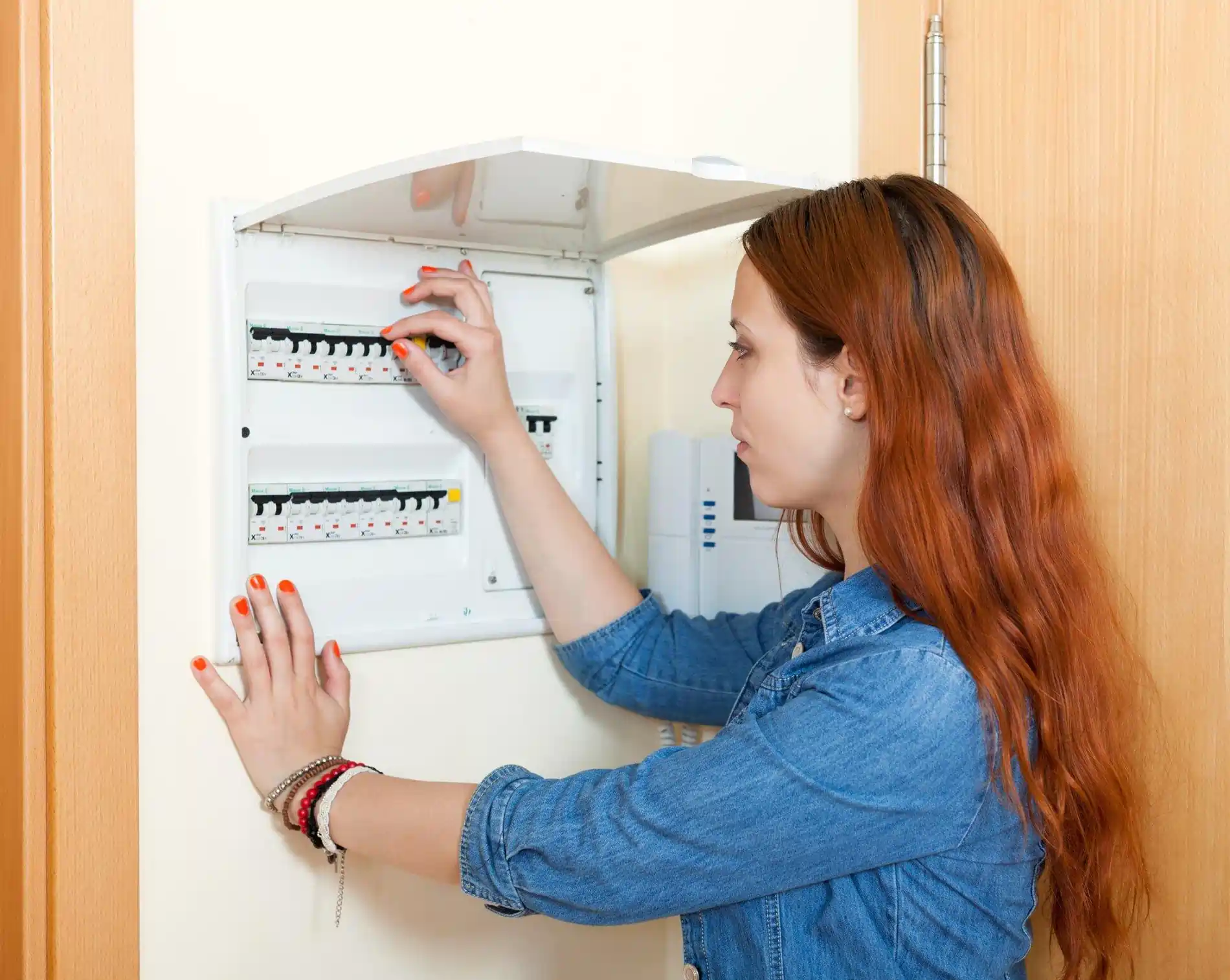It’s finally the weekend, and you’re ready to make the most of it. You plan to stay indoors, prepare a nice meal, and relax on the couch, watching your favorite TV series.
But things get weird right after you turn the TV and the home theater system in the living room on. The lights flicker before switching off by themselves. Then, everything else electric in the room loses power, from the TV to the speakers and lamps.
Before you start getting scared of ghosts, do some electrical troubleshooting first. The above are more likely symptoms of electrical problems in your Nashville, TN, house. They may not be severe yet, but the sooner you discover them, the sooner you can fix and prevent them from worsening.
This guide teaches troubleshooting steps and appropriate electrical solutions, so read on.
Isolate the Problem
First, determine if the problem you experience occurs in just one room or your entire house.
Let’s use the example above wherein the living room lights flicker. In this case, check if it also happens in the other rooms. Do the same if the power goes out in one room; see if this is the case in every other part of your house.
This troubleshooting step can help you determine if the problem is house-wide or if it’s an isolated issue.
Inspect Light Bulb Connections
Do the lights only flicker in one room? If so, the bulbs may have just gotten loose and dirty. Turn the lights off, clean the bulbs and fixtures, and tighten their connections.
If the problem persists, inspect the light switch. Is it loose or warm, or does it give you an electrical shock? If so, there may already be an issue with the switch or the wiring.
In that case, your best bet is to call an electrical specialist in Nashville, TN. A good enough reason is that electrical shocks can be severe enough to cause injuries and burns. You don’t want that to happen, so have a professional diagnose and fix the wiring problem ASAP.
If the lights also flicker in other rooms, take that as a sign you have a house-wide electrical issue. It’s also best to contact an electrical specialist in this case.
Determine If You’re Overloading Your System
Flickering lights and power outages isolated to your home can indicate an electrical overload. This means you’re demanding more power from your electrical system than it can handle.
Overloads are dangerous and are some of the primary causes of electrical fires in U.S. homes. You may be overloading your electrical system if you:
- Permanently use extension cords
- Have devices plugged into all the sockets of your extension cords
- Have another extension cord connected to an extension cord
- Simultaneously use both receptacles of a wall outlet to operate heat-generating appliances
An overloaded electrical system will trigger the circuit breakers to switch off. This is an electrical safety feature meant to stop the dangers of overloads. Therefore, the power gets cut when the breakers trip, hence the “mini blackouts” in your home.
Can You Just Turn the Circuit Breakers Back On?
You can turn the breakers back on to restore power, but the circuits will likely trip again if the system remains overloaded.
The more often that happens, the more wear and tear your electrical panel and its components will sustain. Over time, this can result in the circuit breakers malfunctioning and failing to trip when needed.
What Should You Do Instead?
Before you switch the breakers back on, check your wall outlets and what you have plugged into them first.
Do your wall outlets have burn marks or smell of burning rubber? If so, that indicates you’re overloading your system. You should call a professional to inspect and carry out electrical repairs.
If there are no scorch marks or burn-like smells, the next step is to check what exactly goes into the outlets. If it’s an extension cord with all of its receptacles used, unplug it. This may be what’s overloading your electrical system and tripping the circuit breakers.
You can verify that by switching the breakers back on after unplugging the full extension cord. If the latter is the problem, your breakers will likely stop tripping.
So, does that mean you can no longer use the devices plugged into the extension cord? You can, but you must connect them to a different outlet to prevent electrical dangers like overloads.
The wiser, longer-term solution is to have a professional upgrade your electrical panel. Your new panel will be able to support more appliances and electronic devices. You can also have the expert install more outlets so you can stop relying on extension cords.
Check Who Manufactured Your Electrical Panel
When you inspect your electrical panel, look for its manufacturer’s name. Call a licensed electrical specialist ASAP if it says Federal Pacific Electric (FPE).
Experts estimate that at least one million FPE panels installed in U.S. homes are defective. They may fail to trip when needed, posing electrical fire and shock hazards.
Older homes built from the 1950s to the 1980s are more likely to have one of these defective electrical panels. So, if your house in Nashville, TN, has been around since then, it may have one of these panels installed. Please have it replaced by a professional as soon as possible before it puts your home and loved ones at risk.
It’s even more crucial to have an electrical specialist replace your panel if it has burn or scorch marks. Do the same if it makes loud and weird sounds, such as crackling or hissing. These are signs of an overloading system whose breakers can’t trip because of a defect.
Follow These Electrical Troubleshooting Tips For Your Safety
When the lights flicker and the power goes out only in your home, it’s not a ghost to blame. It’s more likely your electrical system is acting up and needs TLC. In this case, follow our electrical troubleshooting tips to diagnose and address the problems.
If the issues persist, call Lanham Mechanical Contractors. You can rely on our team of expert technicians, just like the rest of our Middle Tennessee customers have for the past 30 years.
So, call us today! Our fully licensed technicians are ready to assist 24/7.



